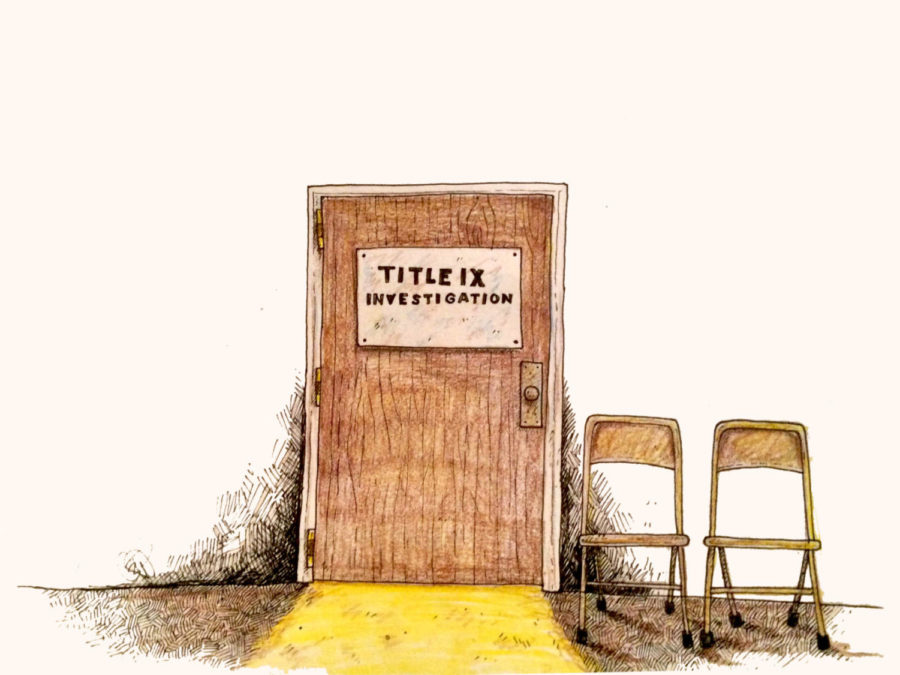Women in Harwood sexual misconduct investigation join suit with UK
November 21, 2016
Two survivors who came forward to the Kernel to report the sexual misconduct investigation into former associate professor James Harwood have switched their stance on the issue of open records transparency and are joining UK in its lawsuit against the student newspaper.
Amicus briefs filed this week said that the women believe all of the relevant information in the case has already been reported, and that they, “adamantly oppose the disclosure of additional, highly-personal records about them and that may lead the media, or other interested persons, to discover their identities.”
Before the women had a private meeting with Capilouto and retained a lawyer from a firm affiliated with the university, the women told the Kernel that they wanted the documents to be available to the public with names and identifiers redacted.
The briefs filed this week by their legal counsel contradict that, saying they do not like that the focus of media coverage has been on the open records battle, instead of the issue of professors transferring schools without their investigations following them.
The two women approached the Kernel in March of this year with their account of the investigation through an anonymous representative.
They said Harwood was allowed to resign after being charged with two counts of sexual assault and two counts of sexual harassment in a UK Title IX investigation.
No mention of the investigation would follow him to his next job, including at universities where they feared he would repeat his behavior.
The university responded to open records requests with limited information about the investigation and refused to hand over redacted investigative reports.
Over the course of the summer, the representative for the survivors continued to reach out to a Kernel reporter to pursue a story about Harwood, including sharing information about allegations of research misconduct.
In August, the representative reached out to the Kernel the day after President Eli Capilouto said in an email to campus that the university would sue the newspaper.
The university is suing the Kernel in Fayette County Circuit Court to appeal the Attorney General’s decision stating the documents can be redacted to protect survivors’ identities and private information, and must be released to the public.
The representative met with the Kernel the next day and gave statements from the survivors who said UK’s actions made it seem like it was protecting Harwood.
“(It) seems blindingly obvious that they can redact names and victims are protected,” the representative said.
They said they were surprised they had to find out about the decisions Capilouto made after it was disseminated and written about in the Herald-Leader and the Kernel.
The Kernel asked if the survivors would want the documents to be released with names and identifiers redacted, to which they responded yes. That was why they brought the documents in question with them to the Kernel office.
The representative said that after talking with the witnesses and survivors in the case that everyone thought the best solution would be if there were transparency.
“The victims and some of the other people involved had a flurry of emails back and forth and decided that playing Julian Assange here, and doing a little Wikileaks, was what we saw as the best way forward,” the representative said before handing the investigative report, the appendix and the cover letter to the investigation over to the Kernel.
The representative said the group debated waiting for the legal battle to end, but because of the possibility that a judge may rule the documents are not public record, they decided to release them now.
“The whole sealing of these records is what we’re perceiving as a protection of James (Harwood) that seems completely unwarranted and is actually doing more harm to the victims and to potential future victims,” the representative said. “We had the power to short-circuit this by handing them over. Yeah, have a field day with that.”
The representative facilitated contact between the Kernel and the women through email during the writing and editing of the story, to make sure they were comfortable with all of the details and that nothing would identify them.
After publication, the Kernel continued communicating with the women as the story was picked up by national media, and their stances remained the same until they had a private meeting with Capilouto.
According to letters written by the women, they met with Capilouto to discuss a number of issues, including the problem of employees found responsible for sexual misconduct by university investigations being able to leave quietly without notice of their behavior reaching their future employers and universities.
The university made a referral for the women with Washington D.C law firm Baker Donelson, which UK has had lobbying contracts with, UK spokesman Jay Blanton said.
After the meeting the women retained Baker Donelson attorney Daniel A. Cohen, a lawyer who has represented many universities and athletic departments in Title IX lawsuits, Blanton said. He will be representing them Pro Bono.
Cohen and Dana Howard, a member of the firm Stoll Keenon Ogden who concentrates on privacy law and is a guest lecturer at UK, submitted the briefs in court this week.
On Friday at the hearing Judge Clark allowed the briefs to be filed, but there will be a hearing on Dec. 2 they will not be able to participate in.






























































































































































